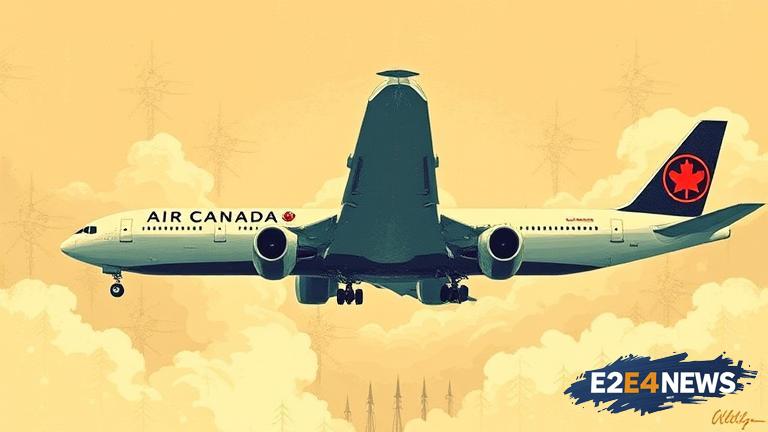The recent discussion surrounding Air Canada’s grip on the Canadian airline market has led to a reevaluation of the term ‘oligarchy’ and its implications. With Air Canada controlling a significant portion of the market, many are questioning whether the term is too lenient to describe the company’s effective monopoly. The airline’s dominance has been a topic of concern for years, with many arguing that it stifles competition and limits consumer choice. The lack of competition has resulted in higher prices and reduced services, ultimately affecting the Canadian economy. Furthermore, the airline’s influence on the market has led to a decline in smaller, regional airlines, which are essential for connecting rural communities. The Canadian government has been criticized for its lack of action in addressing the issue, with some arguing that it has enabled Air Canada’s monopoly. The situation has sparked a national debate, with many calling for increased regulation and competition in the industry. Some have suggested that the government should consider introducing policies to promote competition, such as reducing barriers to entry for new airlines or increasing funding for regional airlines. Others have proposed that Air Canada should be broken up into smaller, more manageable entities to increase competition. The issue has also raised concerns about the impact of Air Canada’s monopoly on the environment, with some arguing that the lack of competition has led to a lack of innovation in sustainable aviation practices. Additionally, the airline’s dominance has resulted in a lack of investment in new technologies, which could improve efficiency and reduce emissions. The Canadian public has been vocal about their dissatisfaction with Air Canada’s services, citing long wait times, poor customer service, and limited flight options. Many have taken to social media to express their frustration, with some calling for a boycott of the airline. The situation has also sparked a discussion about the role of government in regulating industries and promoting competition. Some have argued that the government has a responsibility to protect consumers and promote competition, while others have suggested that the free market should be allowed to dictate the industry’s direction. The debate has highlighted the need for increased transparency and accountability in the industry, with many calling for more detailed reporting on Air Canada’s financials and operations. The issue has also raised questions about the impact of Air Canada’s monopoly on the country’s tourism industry, with some arguing that the lack of competition has resulted in higher prices and reduced services for tourists. Furthermore, the airline’s dominance has led to a decline in the number of flights to rural areas, making it difficult for tourists to access these regions. The Canadian government has announced plans to review the country’s aviation policies, which could potentially lead to increased regulation and competition in the industry. However, some have expressed skepticism about the government’s ability to effectively address the issue, citing a lack of political will and a strong lobby from Air Canada. The situation has sparked a national conversation about the need for increased competition and regulation in the airline industry, with many calling for change. As the debate continues, it remains to be seen whether the term ‘oligarchy’ will be replaced by a more fitting description of Air Canada’s market dominance. The issue has significant implications for the Canadian economy, environment, and tourism industry, and it is essential that the government takes action to address the concerns of consumers and promote competition in the industry.
